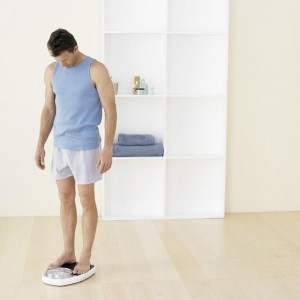
Elton John is a multiple Grammy Award winner and a music legend known all around the world.
Russell Brand is an internationally acclaimed comedian and movie star.
Both have achieved a long string of accomplishments and public recognition.
But did you know that both of these men have also personally battled eating disorders?
We’ve all heard about anorexia nervosa and bulimia, and most of us have just assumed that these disorders affects only women. But you’d be surprised to learn that a growing number of men have one or both of these conditions. This is supported by a recent Harvard study which found that from a sample group of 3000 people, 25% of those with anorexia or bulimia were men. This was startling news as it not only showed that many men suffer from eating disorders, but the number has actually increased from previous research which showed only 10%.
You might be wondering: Why the dramatic increase? Are more men dealing with this issue or is it just that there’s more men actually reporting it? Well, the honest answer is: we don’t know for sure. What we do know is that the things contributing to male eating disorders are clearly different from those affecting females.
Historically, our culture hasn’t really supported the idea of dieting in boys. That’s something that women do, and its’ accepted. So why do young men begin monitoring what they eat? There are many reasons. Some involved in sports, like wrestling or gymnastics, are wanting to better their performance and standing. Some do it out of fear of ridicule from their peers for being overweight or are fearful of dealing with weight related disease they recognize in their fathers. Some want to make themselves more attractive to their gay partners.
Like young women, guys are just as susceptible to a variety of social pressures and media images. But the greatest difference is that men are traditionally geared to be strong and self-reliant when it comes to emotional or personal issues. Women will come forward to reveal their eating disorders. Men on the other hand are very reluctant to discuss it publicly.
“It’s underreported and that is especially true for guys,” says elite lacrosse player, Patrick Bergstrom, who himself battled anorexia. “Guys are supposed to be strong and not talk about their feelings and that’s pushed in the media.”
So maybe you’re one of these guys or you know someone who might have an eating disorder. After all the first step to recover is to take it seriously and to get professional support and help, just like thousands of women have already done. What are some signs or symptoms? Here are a few:
- being pre-occupied with body building or weight lifting
- always exercising even when sick
- feeling anxiety about not exercising
- anabolic steroid use
- fears about sex or conflict about sexual orientation
Perhaps you’re struggling with one of these symptoms. This is not only an opportunity for you to allow that sign to point the way towards freedom from struggle but towards health and happiness. This is the time to begin to realize your body is unique and individual. There is no “right” size or shape. Your body allows you to live life, relate to others and express yourself. Support your body, but also develop the qualities and abilities that make you uniquely “you”.
And you don’t have to begin the journey alone. Start writing down your thoughts in a journal and when you’re ready, turn to a friend with whom you can trust your feelings and anxieties. Choose a comfortable place to talk or if you’re not at that place yet, put it in writing.
There are places that can offer you a refuge in your storm where you can be supported in all kinds of ways and find the tools to help yourself to becoming a healthier and happier person.
Sign up for my newsletter: Free to be Me: Recovery from Addiction and Codependency and get your free report: “10 Ways to Prevent the Dreaded Relapse” at https://www.ginavanderham.com/newsletter-subscribe.
Sign up for my newsletter, Free to be Me: Recovery from Addiction and Codependency and get your free copy of “10 Ways to Prevent the Dreaded Relapse”
